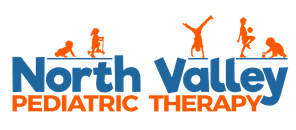Most toddlers love to listen to music! It is exciting and keeps their attention. It is also a fun way to teach a variety of new skills, such as fine and gross motor skills, following directions, basic concepts, and new vocabulary. By singing songs with your child, you can help increase their speech and language skills.
3 Reasons Why It Works:
- It is repetitive. This repetitive language allows the child multiple attempts to imitate a phrase or word within the song. The more the child hears the word, the more likely they are to use the word again.
- The verbiage is often simple. If the language within a song is simple, the child is more willing to imitate those words and phrases. The simple language also keeps their attention. Most songs made for young children are short and contain common vocabulary they already know.
- It is motivating! Most children want to join the fun when they hear music! It’s a chance to be silly and have fun!
Recommended Songs:
“Head, Shoulders, Knees and Toes”
- Practices labeling major body parts
- Encourages gross motor movements
“Old McDonald Had A Farm”
- Practices farm animal names
- Practices farm animal sounds
“Wheels on the Bus”
- Practice imitating fun sounds
- Encourages imitating movements
“I’m a Little Teapot”
- Introduces rhyming
“If Your Happy and You Know it”
- Teaches emotions
- Teaches early gross motor movements
“Itsy Bitsy Spider”
- Helps with imitation skills
“Twinkle Twinkle Little Star”
- Helps imitate movements
- Perfect for your nighttime routine
Overall, it is important to make singing with your child fun and enjoyable! These songs are great while playing outside and while in the car. It is important to try to find a way to incorporate them into your daily routine.
Reference: “Singing helps speech and language development” https://beaumontparenting.wordpress.com/2017/04/04/singing-helps-speech-and-language-development/

Blog by:
Ashley I. – MS, CCC-SLP
Speech-Language Pathologist
